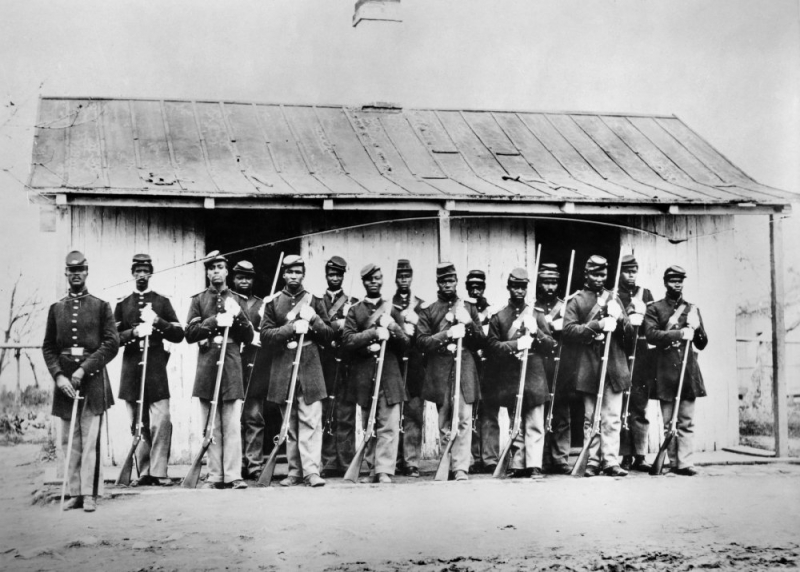Douglass convinced Black soldiers to sign up for the Civil War
Frederick Douglass leveraged his prominence as the most well-known African American social reformer, orator, writer, and abolitionist during the Civil War to persuade men of his race to enlist in the Union army. In other words, Douglass convinced Black soldiers to sign up for the Civil War. Douglass urged men who had previously been slaves to "stand up in the dignity of our manhood, and prove by our own right weapons that we are worthy to be freemen" in his broadside "Men of Color to Arms! Now or Never!".
Frederick Douglass saw the Civil War as the "golden moment" for African American men to unite with all races of men to assert their claim to freedom and manly character. Douglass gained international fame after the 1845 publication of his first autobiography, Narrative of the Life of Frederick Douglass, an American Slave. Douglass was of the opinion that his brethren may legitimately claim America as their nation by protecting it. Black males were able to establish their rights as male citizens and escape the stigma of being helpless slaves while serving in uniform.
Douglass pleaded with Abraham Lincoln and others to offer blacks a fighting chance at the start of the Civil War in 1861. Is he not a man? In his Douglass 'Monthly periodical, Douglass penned. They may not carry swords, fire firearms, march, engage in counterattacks, or submit to authority figures like others. This was not an issue for males of color, however, for the majority of white men in the Confederacy. It is a war of white men.
Until Lincoln issued the Emancipation Proclamation on January 1, 1863, which freed all slaves in the states that had seceded from the Union, the conflict would mostly involved white people. A clause urging the enlistment of African-American males in the Union's military services was included in the statement. Douglass traveled more than 2,000 miles from Boston to Chicago while extolling the Union's devotion to Black men and used his newfound authority to recruit. Many of his talks on recruitment would end with him leading the crowd in the hymn "John Brown's Body," which was a favorite of the Union Army.











